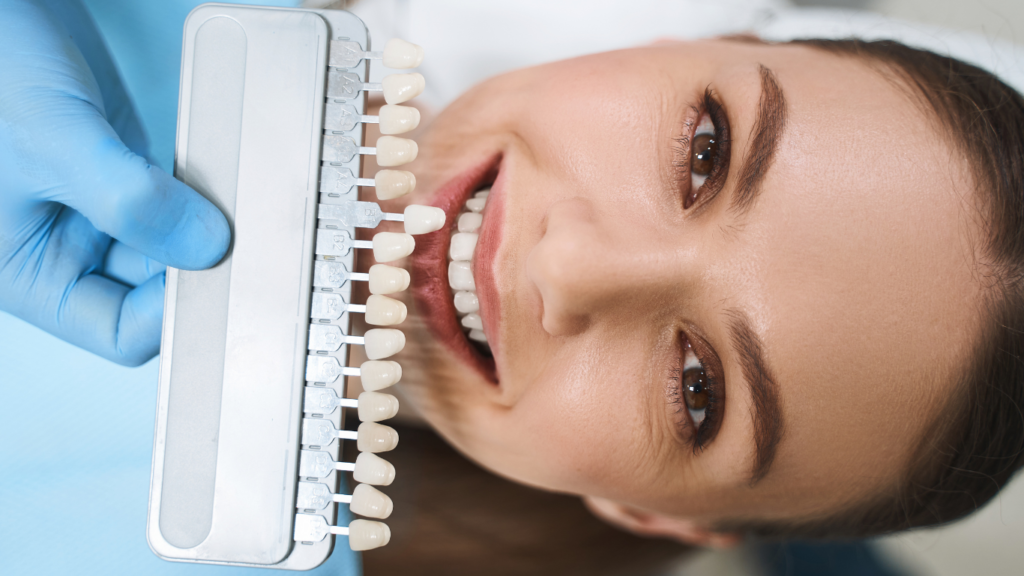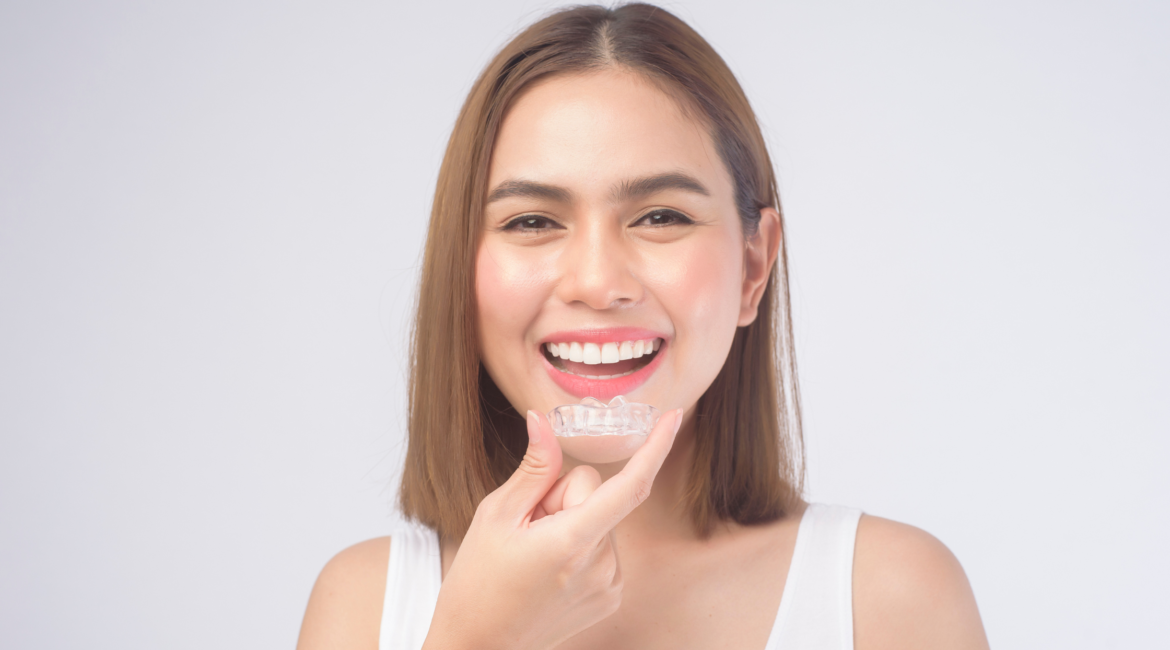A beautiful smile can boost your confidence and leave a lasting impression. However, if you have crooked teeth, you may wonder which dental treatments are the most suitable to enhance your smile.
Two popular options that people often consider are veneers and Invisalign.
While both treatments can improve the appearance of your teeth, they serve different purposes and address different issues. So, can veneers fix a crooked smile, or do you need Invisalign? This article will break down each option and help you determine which one is right for you.
What Are Veneers?
Veneers are thin, custom-made shells made from porcelain or composite resin that cover the front surface of your teeth.
They are designed to enhance the appearance of your smile by correcting various aesthetic issues such as discoloration, chips, gaps, and minor misalignment.
How Veneers Work
Veneers are bonded to the front of your teeth, providing an immediate transformation in their appearance.
The process typically involves removing a small layer of enamel to make room for the veneers and ensure a natural fit.
They can improve the shape, color, and alignment of your teeth, giving you a brighter and more even smile.
Can Veneers Fix Crooked Teeth?
Veneers can address mild misalignment or crookedness in your teeth, particularly if the issue is cosmetic rather than functional.
For example, if your teeth are slightly crooked or uneven, veneers can mask these imperfections and create the appearance of a straight smile.
However, veneers do not actually move the teeth into the correct position; they simply provide a façade that gives the illusion of straight teeth.

When Veneers Can Help
- Minor gaps or misalignment that are more cosmetic than functional.
- You want a fast and dramatic transformation.
- You have other aesthetic concerns, such as discolored or worn teeth, that you also want to address.
When Veneers Are Not Ideal
If your teeth are significantly crooked or if the misalignment affects your bite, veneers alone may not be enough to correct the issue.
Veneers are a more invasive option than orthodontic treatments, as some enamel needs to be removed.
In cases of moderate to severe crookedness, orthodontic treatments like Invisalign may be more appropriate.
What Is Invisalign?
Invisalign is an orthodontic treatment that uses a series of clear, removable aligners to gradually move your teeth into their correct position.
Unlike traditional braces, Invisalign is nearly invisible, making it a popular choice for adults and teens who want to straighten their teeth without noticeable metal brackets and wires.
How Invisalign Works
Your dentist or orthodontist will take impressions or 3D scans of your teeth to create a customized set of aligners.
Each aligner is worn for about two weeks, gradually shifting your teeth closer to their ideal position, and must be worn for at least 20-22 hours per day for optimal results.
Aligners should only be removed for eating, drinking, brushing, and flossing.
Advantages of Invisalign
Invisalign is designed to treat a wide range of alignment issues, including crooked teeth, gaps, crowding, and bite problems (overbite, underbite, crossbite).
It is an effective solution for patients who need to correct more significant orthodontic concerns that veneers alone cannot address.

When Invisalign Is the Right Choice
- Your teeth are moderately to severely crooked.
- You have bite issues (such as overbite, underbite, or crossbite) that need correction.
- You want a non-invasive option that moves your natural teeth into the correct position.
When Invisalign May Not Be Ideal
- You are looking for an instant transformation. Invisalign requires commitment, and treatment can take several months to a couple of years depending on the severity of the misalignment.
- You are not comfortable with the idea of wearing aligners for most of the day.
Comparing Veneers and Invisalign: Which Is Right for You?
Now that you understand how veneers and Invisalign work, let’s compare these two treatments to help you decide which option is best suited for your situation.
Cosmetic vs. Functional Fixes
Veneers are primarily a cosmetic solution. They can correct the appearance of slightly crooked teeth but do not address the underlying alignment or bite issues.
Invisalign is a functional solution. It actually moves your teeth into the correct position, fixing both cosmetic and functional alignment issues.
Time and Treatment Duration
Veneers provide immediate results. Once the veneers are placed, your smile is transformed.
Invisalign takes time to produce results, typically requiring several months to over a year, depending on the complexity of the case.
Invasiveness
Veneers are more invasive because they require the removal of a small amount of enamel from your natural teeth.
Invisalign is non-invasive, as it does not require any permanent alterations to your teeth.
Longevity and Maintenance
Veneers are durable and can last for 10-15 years with proper care. However, if they chip or crack, they will need to be replaced.
Invisalign results are permanent as long as you wear retainers after the treatment to maintain the new position of your teeth.
Cost
Veneers can be more expensive upfront because they offer an immediate, dramatic change.
The cost per tooth can range from $900 to $2,500, depending on the material and location.
Invisalign is usually comparable in price to traditional braces, with costs ranging from $3,000 to $8,000 for full treatment.
Can You Combine Veneers and Invisalign?
In some cases, you may benefit from a combination of veneers and Invisalign.
For example, you might use Invisalign to straighten your teeth and correct any bite issues, and then opt for veneers to perfect the shape and color of your teeth afterward.
This combination can provide both functional and aesthetic benefits, resulting in a perfectly aligned and beautiful smile.
Conclusion: Which Treatment Is Right for You?
Deciding between veneers and Invisalign depends on the specific condition of your teeth and your goals for treatment.
If your crooked teeth are more of a cosmetic concern and you want fast results, veneers may be the ideal solution. However, if your teeth are more severely misaligned or if you have bite issues, Invisalign may be the better option for achieving a healthy, long-term solution.
The best way to determine the right treatment for your smile is to consult with a dental professional who can assess your teeth and provide personalized recommendations based on your needs.
Whether you choose veneers, Invisalign, or a combination of both, you can look forward to a straighter, more confident smile!
Modern Day Dental – St. Johns, FL
If you are seeking expert dental care and are located in or around St. Johns Florida, consult with the experts at Modern Day Dental to help maintain optimal oral health.
We use the latest, cutting edge technology to make dental procedures as smooth, fast and painless as possible.

